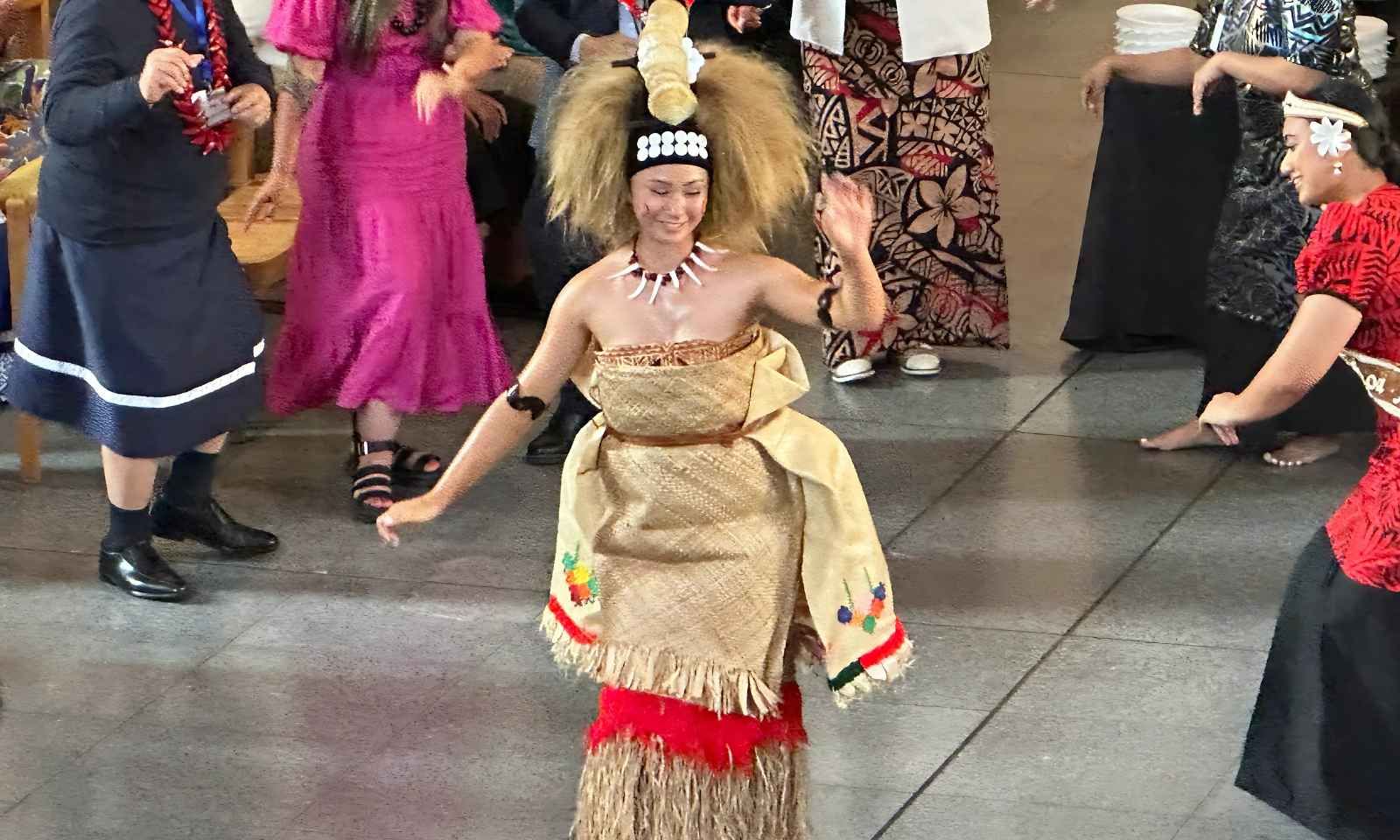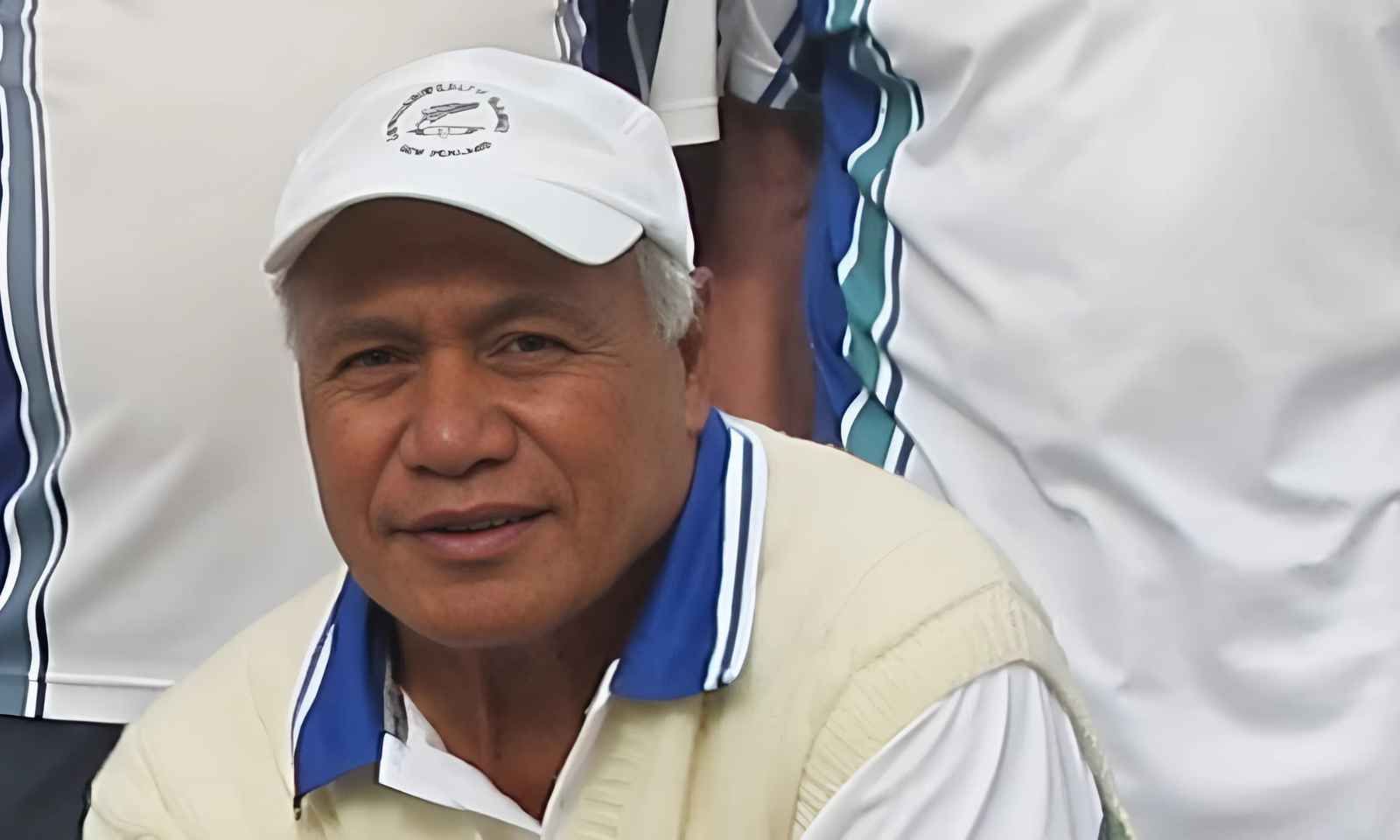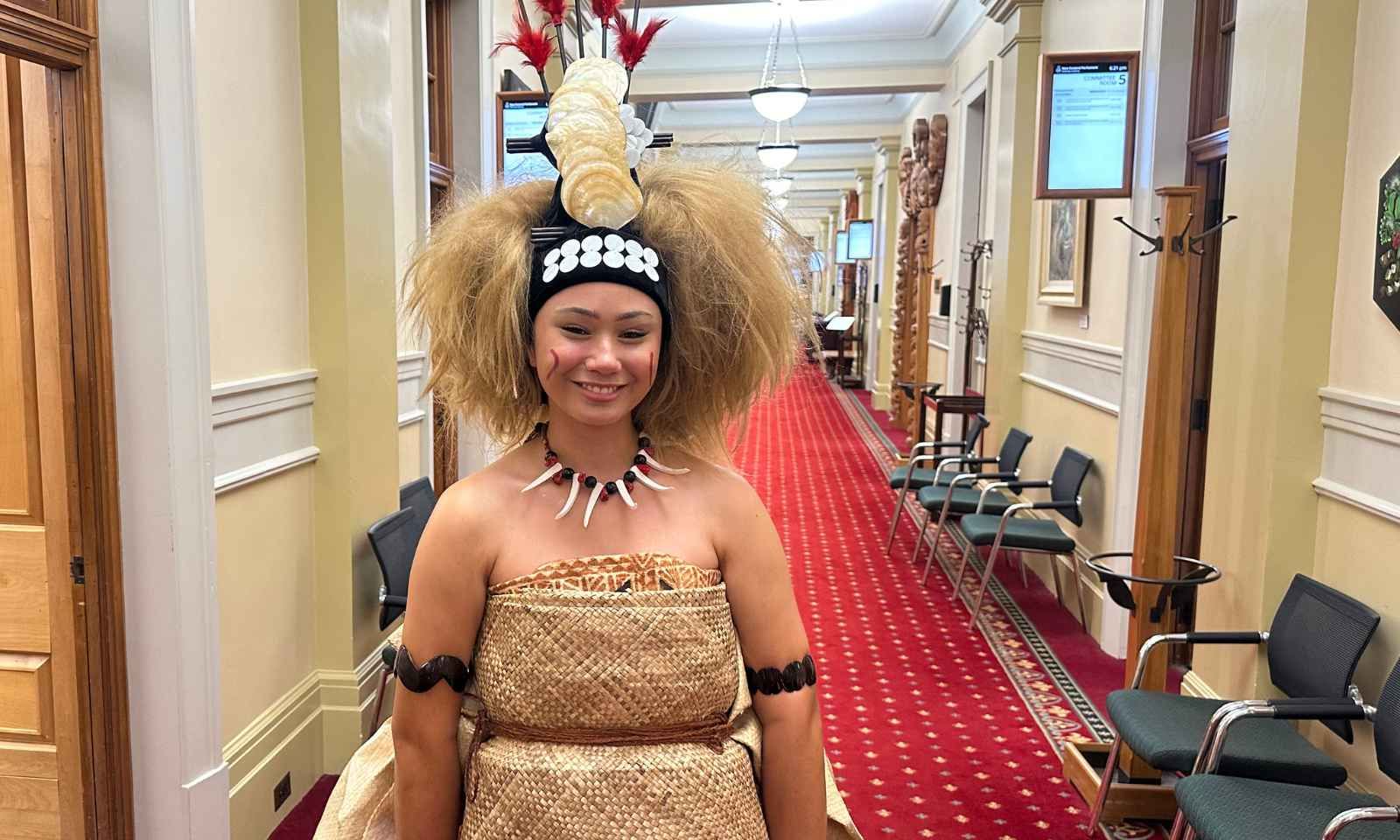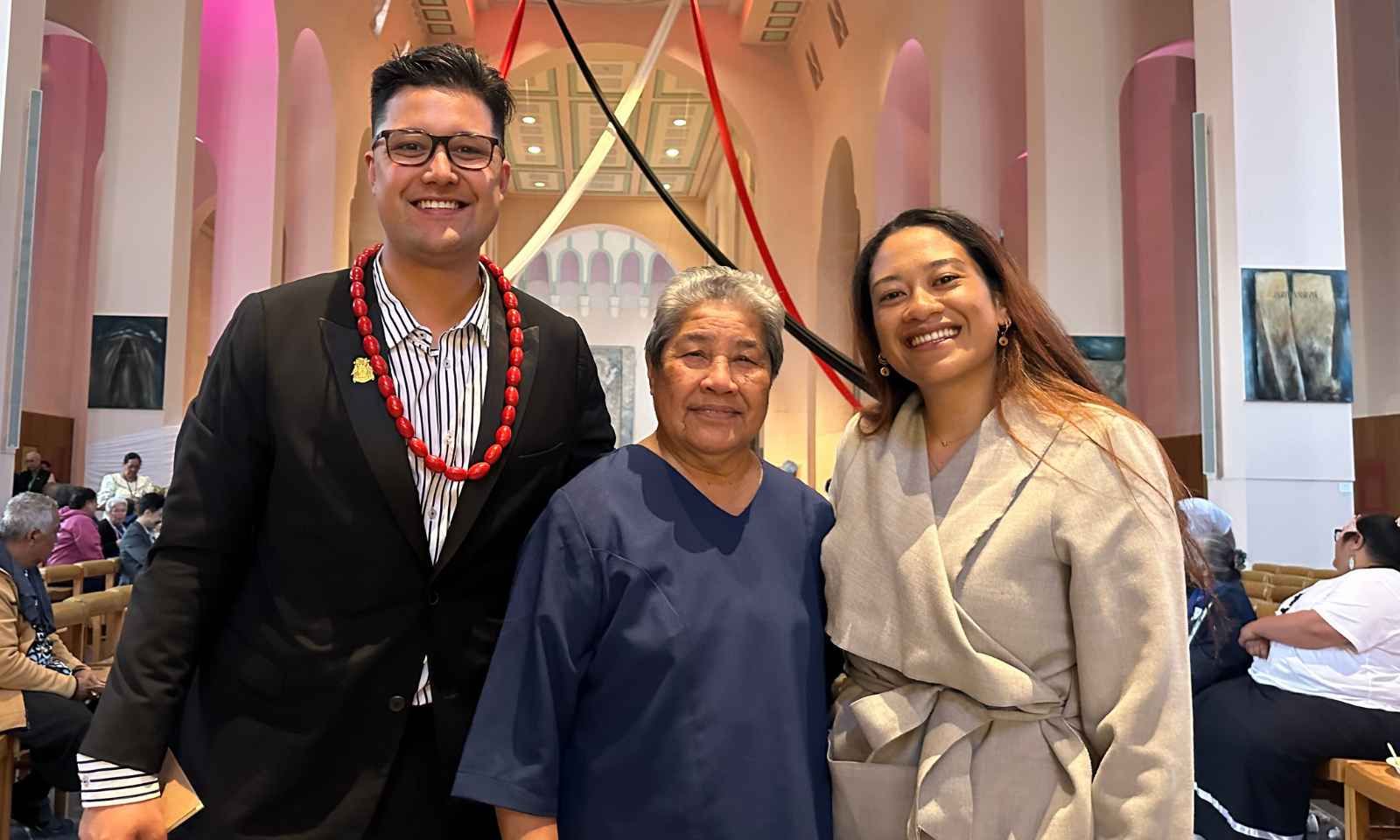

Esmae (centre) with parents Jenny and Toeolesulusulu Damon Salesa after the bill's third reading.
Photo/Ala Vailala
‘Sāmoa was always his second home. New Zealand was the first’
Esmae Salesa highlights the power of youth advocacy, intergenerational unity and the collective fight for Pasifika justice.


South Auckland artist donates song proceeds to local charity


How Trump’s 'America first' policies could impact NZ and Pacific

Sāmoa’s political future unclear as Parliament reconvenes

South Auckland artist donates song proceeds to local charity


How Trump’s 'America first' policies could impact NZ and Pacific
Amid the celebration and emotion that followed the passing of the Restoring Citizenship Removed by Citizenship (Western Sāmoa) Amendment Bill, one voice stood out: Esmae Salesa, a young advocate whose determination helped bring this moment to life.
After the bill passed its final reading, Salesa described the overwhelming emotions of witnessing this historic moment.
The daughter of MP for Panmure-Ōtāhuhu, Jenny Salesa and Vice-chancellor of the Auckland University of Technology, Professor Toeolesulusulu Damon Salesa, Esmae says she carries her family’s legacy of advocacy.

Salesa performs a siva Sāmoa following the bill's final reading. Photo/Ala Vailala
“I’m feeling a lot of emotions right now. I’m just so happy that the bill has passed.
“Justice has been served to our elders, and Falema’i Lesa herself was here to witness that change. And I think that’s so beautiful.”
Salesa reflected on the long road to this achievement and the reward of seeing it through.
“It’s very rewarding… I’m really blessed to be a part of this and to see this bill pass for our elders. It’s been a long road.”
Youth as voices for the voiceless
For Salesa, the passing of the bill is deeply personal.
Her grandfather, Tusanilefaia’ao Ieremia Salesa, immigrated to New Zealand as a young man, only to have his citizenship stripped in 1982.

Esmae's paternal grandfather, Tusanilefaia'ao Ieremia Salesa. Photo/Otara Sports Awards Facebook
“My grandfather… immigrated to New Zealand when he just turned 18.
“He left his family in Satapuala and Vaisala to provide a better life for his parents while working overseas.”
She spoke of how her grandfather made New Zealand his home despite losing his rights.
“He lived in this country longer than he did in Sāmoa, and Sāmoa was always his second home. New Zealand was the first.
“Unfortunately, his right to New Zealand citizenship was stripped by the government.”
Salesa’s advocacy is driven not only by her grandfather’s experience but also by her commitment to others in similar situations.

Esmae Salesa gathered thousands of support from young people during the bill's Select Committee process. Photo/Ala Vailala
“As his grandchild, I’m just so happy that I was able to be a part of this change, not just for my grandfather but all those second- and third-generation Sāmoans who only know New Zealand as their home.”
Unity and collective action
Salesa credited the bill’s success to the collective efforts of the Sāmoan community and the many young leaders who stood with her.
“I’ve said before that as the youth, we are the voice for those who were voiceless in that time of need, and I’m so happy that I’m not just the only young Tamaita’i Sāmoa here today. I’ve been alongside so many other inspirational Sāmoan youth here.”
She emphasised the importance of community mobilisation, pointing to the 7000 supporters who backed her submission.
“I just want to say thank you to all… I really wouldn’t be able to be here and feel so much mana without the countless other people who backed this bill and backed my petition and my submission.”

Falema'i Lesa (centre) won her case for citizenship at the Privy Council back in 1982. Photo/Ala Vailala
A vision for the future
While celebrating the bill’s passage, Salesa also expressed her hopes for the future.
She called on Pacific youth to continue pushing for justice and equity.
“The new generation - when we make moves, we make them together. I’m so blessed that we were able to create a very positive change today.”
She also highlighted the importance of standing in solidarity with Māori.
“I just hope with the future and Te Tiriti, we can continue to stand alongside Tangata Whenua as Tangata Moana.”
Watch Esmae Salesa's full interview here.

